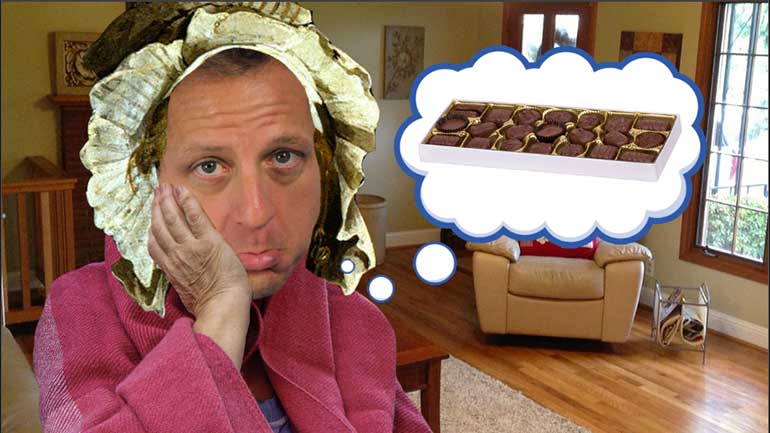ShmoopTube
Where Monty Python meets your 10th grade teacher.
Search Thousands of Shmoop Videos
Modern World History 3.10 Captains of Industry 57 Views
Share It!
Description:
The Rockefellers, the Morgans, the Carnegies...these were just a few of the Captains of Industry, also known as Robber Barons. We can probably guess which one they put on their LinkedIn profiles.
Transcript
- 00:04
Remember this guy? Sure you do. Mr. John D. Rockefeller, [The photo of John D. Rockefeller appears on the screen]
- 00:08
founder of Standard Oil, and steamroller of all oil competition. [A hand tries to grab oil rig from John D. Rockefeller and fails]
- 00:12
Rockefeller was ultimately worth billions. [gold bricks are placed in vault]
- 00:14
Now, he and captains of industry like him, didn't keep all that money for themselves.
- 00:19
They founded universities and built hospitals. [The image of Rockefeller Institute appears on the screen]
Full Transcript
- 00:22
They donated to the arts.
- 00:24
The put libraries in tiny little towns like Lusk, Wyoming. [A priest moves towards Rockefeller and other industrialists]
- 00:27
Well, someone should have given these guys sainthood, right?
- 00:29
Eh, not so fast.
- 00:30
These captains of industry were also called robber barons for a reason. [Businessmen sit on workers' shoulders]
- 00:35
They turned the industries they dominated into monopolies, so that no other person had a prayer of making any money in them. [A man stands on a railway platform and prays to God]
- 00:40
Not only was the greed of the robber barons bad for consumers, who had no choice but to buy from these men if they wanted certain products, [A girl walks down the street]
- 00:47
but it was ultimately bad for the economy and bad for the American political system.
- 00:50
Many people looked at the Morgans and Carnegies of the world and decided that it was unfettered capitalism [The speaker addresses the workers, while the businessman prompts something to him]
- 00:55
that had allowed these men to become really freakin' wealthy at the expense of everyone else, [hierarchy chart of the society is presented on the screen]
- 01:00
particularly the workers who labored for them at ridiculously low wages.
- 01:04
And so socialism and communism, here in America, were born. [babies cry in the cradle]
- 01:08
Socialism is an economic system where the government controls some of the means of production.
- 01:12
The idea is that this allows more people to benefit when goods are produced. [girls stand in a fuel station and give thumps up]
- 01:16
Social democracy is the political extension of socialism, and its proponents work to change the law so that more industries
- 01:22
can be government-owned and more laborers can earn more money under the least onerous working conditions possible. [A worker stands near a coal mine entrance]
- 01:28
Now, socialism isn't about kicking the individual out of the business sphere entirely. [A leg kicks a guy]
- 01:33
It's about mixing the public and private ownership of the means of production.
- 01:37
Specifically, socialists think the government should own those industries
- 01:40
and produce those goods that every person should have fair and affordable access to,
- 01:44
like transportation and healthcare. [A moving bus stops near a girl]
- 01:45
However, we don't recommend stringing the words “socialism” and “healthcare” together at your dinner table. [A family eats dinner]
- 01:50
Your Grandpa may just keel over there. [An old man falls down from his chair]
- 01:52
Then, there's communism.
- 01:54
When you think of communism, you probably think of dead royalty and Stalin's mustache and Russian reversals. [Stalin's photo pops up]
- 01:59
When we think of communism, we think of
- 02:01
Karl Marx and Friedrich Engels and their magnificent facial hair. [The images of Friedrich & Karl Marx appears on the screen]
- 02:05
These two German philosophers used their pens and beards
- 02:07
to encourage the workers of the world to unite, overthrow the robber barons, and take all the goodies for themselves. [Image shows unity of workers]
- 02:13
Sounds like a wacky TV cartoon to us though. [A hand enters from window, grabs a businessman and throws him]
- 02:15
See, in communism, there is no public or private ownership. It's the people who own the means of production.
- 02:21
Any surplus, then, goes back to the people themselves.
- 02:23
Furthermore, if every person in an economic system is a worker and an owner and a consumer,
- 02:28
then traditional social classes can no longer exist.
- 02:31
This was some seriously radical food for thought, and it made the laborers of the world hungry for change. [mine worker is hungry]
- 02:37
Too bad some countries went a little overboard
- 02:38
on communism there in the buffet line.
- 02:41
Well, maybe try some potato salad next time.
Up Next
GED Social Studies 1.1 Civics and Government
Related Videos
When you're about to marry the love of your life, not many things could stop you. However, finding out that your future hubby is keeping his crazy...
Here at Shmoop, we work for kids, not just the bottom line. Founded by David Siminoff and his wife Ellen Siminoff, Shmoop was originally conceived...
ACT Math: Elementary Algebra Drill 4, Problem 5. What is the solution to the problem shown?




